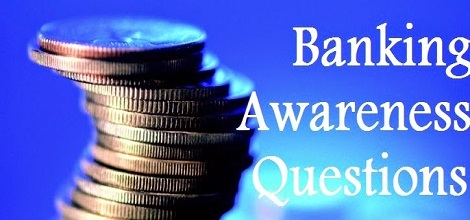Hello Aspirants. Welcome to Banking Awareness Quiz in AffairsCloud.com. Here we are creating quiz covering important questions which are common for all the bank exams and other competitive exams.
- When the bank has not enough funds in the relevant account or the account holder requests that the cheque is ________ then the bank will return the cheque to the account holder.
A. Bounced
B. Honoured
C. Restarted
D. None of theseA. Bounced
Explanation:On the dishonour of a cheque, one can file a suit for recovery of the cheque amount along with the cost & interest under order XXXVII of Code of Civil Procedure 1908 (which is a summary procedure and) can also file a Criminal Complaint u/s 138 of Negotiable Instrument Act for punishment to the signatory of the cheque for haring committed an offence. However, before filing the said complaint a statutory notice is liable to be given to the other party. - CGT stands for
A. Capital gain tribe
B. Crucial gain tax
C. Capital gain tax
D. Capital gross taxC. Capital gain tax
Explanation:It is a direct tax that will be levied on sales and purchases of capital assets such as Shares, stakes, even costlier items which won’t have depreciation such as monuments, paintings. - It is the process at which the government Undertake austerity measures to put restrictions on its economy such as de licensing of industries, disinvestment from stack etc.
A. Fiscal Consolidation
B. Fiscal Policy
C. Monetary Consolidation
D. None of theseA. Fiscal Consolidation
Explanation:Fiscal Consolidation refers to the policies undertaken by Governments (national and sub-national levels) to reduce their deficits and accumulation of debt stock. Key deficits of government are the revenue deficit and the fiscal deficit. Our India is following under RBI, a perfect measure by FRBM act (fiscal responsibility and budgetary management act) 2003. - ________ is not a pillar of Basel III.
A. Minimum capital standards
B. Supervisory review
C. Market discipline
D. Consolidation of assetsD. Consolidation of assets
Explanation:Basel III framework is based on 3 pillars including
• Pillar 1: Minimum capital standards,
• Pillar 2: Supervisory review
• Pillar 3: Market discipline. - The first credit card facility to be recognized worldwide was _______.
A. RuPay card
B. Maestro card
C. MasterCard
D. Visa cardD. Visa card
Explanation:Visa Card- A credit, debit or prepaid card branded by Visa Inc., a major payments technology company. Visa cards are available to individual and business consumers with excellent, good, poor or no credit. Each card has different terms that reflect the consumer’s credit worthiness. - A provision in most loan and insurance contracts which allows payment to be received for a certain period of time after the actual due date and is known as _______.
A. Term Period
B. Loan Period
C. Grace Period
D. None of theseC. Grace Period
Explanation:A grace period is usually the only a feature of a loan on which interest is calculated monthly, if it is calculated at all. Under some loan contracts, payments outstanding during grace periods are interest free, but the majority have interest compounding during the grace period. Be sure to check your loan contract for the specifics on any grace periods.
Credit cards for example, on which interest is calculated daily, do not have any grace periods. - As per Banking, a Certificate of Deposit is
A. Negotiable Instrument
B. Transferrable Instrument
C. Honored Instrument
D. Only A & BD. Only A & B
Explanation:A Certificate of Deposit in India can be issue by: All scheduled commercial banks excluding Regional Rural Banks (RRBs) and Local Area Banks (LABs) Select All India Financial Institutions permitted by RBI - Which among the following is/are eligible to issue Commercial papers in India?
A. Corporates
B. Primary dealers
C. Financial Institutions
D. All of the aboveD. All of the above
Explanation:Commercial paper is an unsecured, short-term loan issued by a corporation, typically for financing accounts receivable and inventories. CP can be issued for maturities between a minimum of 7 days and a maximum of up to one year from the date of issue. However, the maturity date of the CP should not go beyond the date up to which the credit rating of the issuer is valid. - Which of the following is the regulator of the Infrastructure Debt Fund set up as a trust?
A. RBI
B. SEBI
C. IRDA
D. PFRDAB. SEBI
Explanation:Securities Exchange Board of India (SEBI) was set up in 1988 to regulate the functions of securities market. SEBI promotes orderly and healthy development in the stock market but initially SEBI was not able to exercise complete control over the stock market transactions. - It takes around _________ time depending on the drawee centre and collection arrangements to get outstation cheques realised on a Collection basis.
A. 3weeks
B. 5weeks
C. 1week
D. 2weekA. 3weeks
Explanation:Speed Clearing refers to collection of outstation cheques (a cheque drawn on non-local bank branch) through the local clearing. It facilitates collection of cheques drawn on outstation core-banking-enabled branches of banks, if they have a net-worked branch locally.
AffairsCloud Recommends Oliveboard Mock Test
AffairsCloud Ebook - Support Us to Grow
Govt Jobs by Category
Bank Jobs Notification



